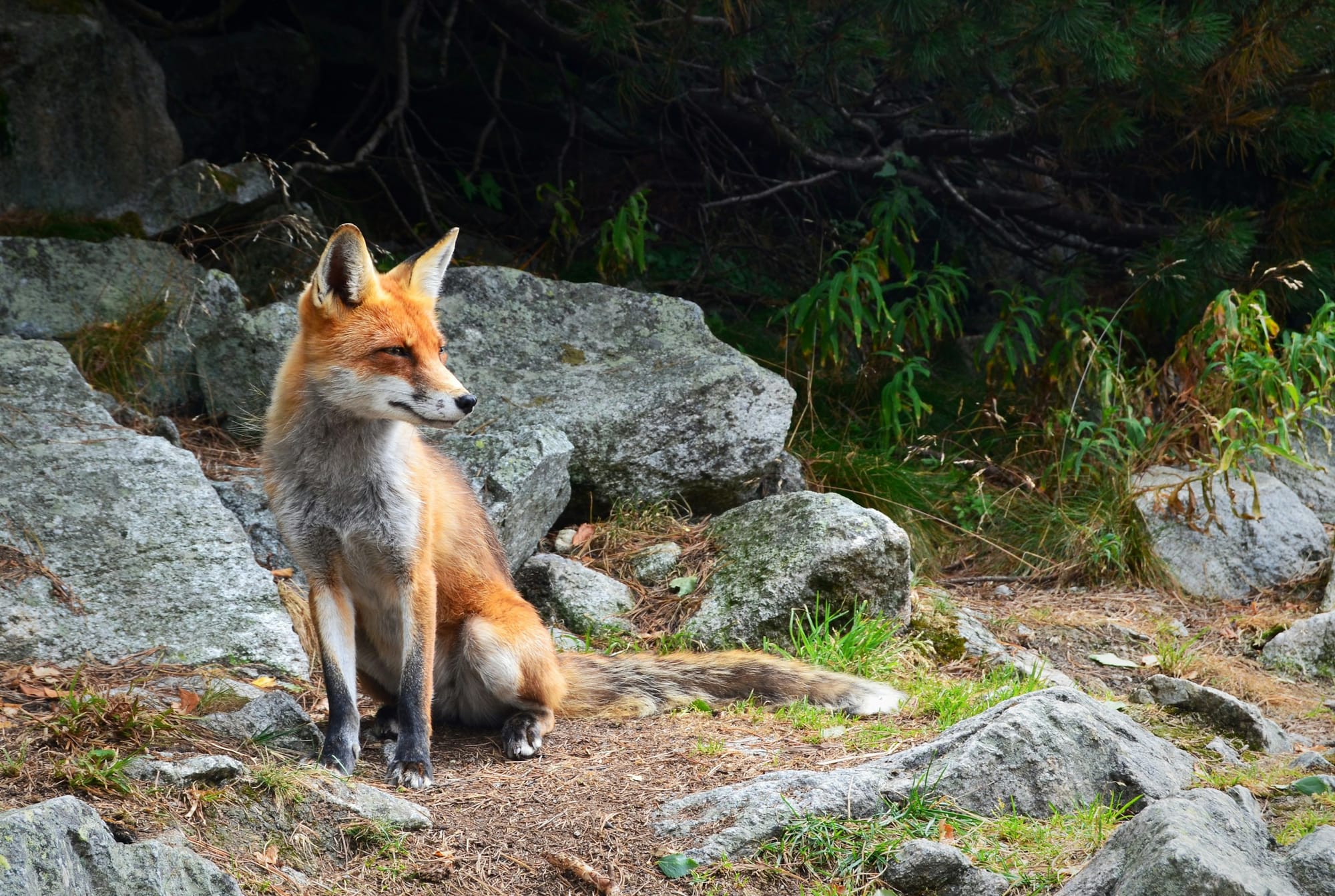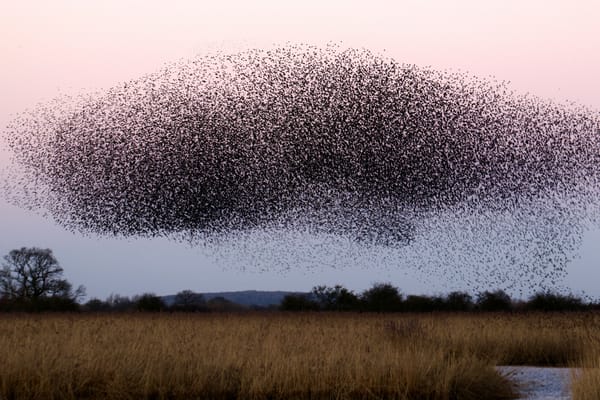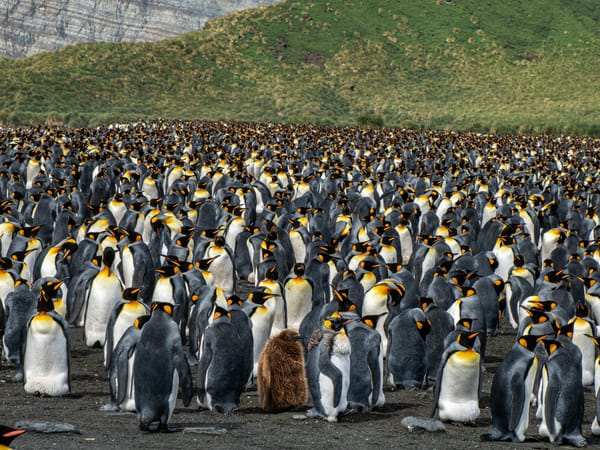Career Advice for Cats and Foxes
We’re asking ourselves the wrong questions

“What do you want to be when you grow up?”
I spent a lot of time as a kid trying to answer that question — not in a casual way, but with an adult-like level of seriousness and deliberation, including trips to the library to research esoteric details of my prospective careers. For example, at one point — I think I was about nine years old — I was planning to be a dog breeder, so I read up on everything from breed-specific diseases to the design and construction of kennel runs.
This continued, with an increasing sense of urgency, right up through high school. The older I got, however, the harder it was to find The One Thing, because I kept discovering new subjects to love. Did I want to be a geneticist? an actor? a psychologist? a sign language interpreter?
I don’t know if anyone ever explicitly told me that I had to pick just one thing to which I would devote my whole life, but it was certainly something I implicitly understood. I had to make a choice, and it had to be the right one, because once I went off to college for a particular major, my entire life’s path was set.
So at seventeen years old, I decided I would be a fiction writer.
This was partly because I loved to read more than anything. And partly because the universe seemed to be telling me I was exceptionally good at writing — I won a thousand dollars in a short story contest that year, among other things.
But it was also, I thought, a way to cheat. If I became a writer I wouldn’t have to pick just one thing. I could keep learning All The Things. I would call it ‘Novel Research’.

Of course you don’t usually earn a living as a fiction writer — not for years and years, if ever. I knew that in theory, but it wasn’t until after I graduated college that I learned just how hard a road I’d chosen for myself.
Not so much because of the writing — I was doing okay in that regard — as because holding down tedious, miserable jobs in order to pay the bills often took all the energy and willpower I possessed, and then some.
You can’t ride two horses with one ass
Then the web happened, and I fell in love all over again.
I soon had two completely separate, simultaneous careers, and I was desperate to keep them both. When I was twenty-seven, I wrote:
I don’t know how to do this. I’m exhausted, and a million things are slipping through the cracks … I could, in theory, take a less ambitious day job with shorter hours and concentrate on the novel. Or I could keep funneling my energy into design and the web, and give up being a writer. Except that serious contemplation of either option sends me into an hysterical fit. You have two children: choose which one you will keep.
I did eventually have to choose — in truth, had already chosen, and it was all over but the kicking and screaming. I mothballed my writing, and went all-in on design.
It didn’t start out as a choice between love and money, since at the time I genuinely loved both things, and pursuing the more financially viable one only seemed sensible. But that’s the choice it quickly evolved into.
The excitement of possibility, the pride of creation, the joy of learning — none of that survived contact with the corporate world. Most of what I’ve done in my design career has been as frustrating, miserable, and meaningless as any of the crappy day jobs I suffered through in my early years as a writer. And over the long run, it wasn’t even all that lucrative.
It’s easy to think of this as a failure, and there have certainly been times I’ve felt that way — that I’m just not good enough, and it’s my fault — that maybe I made the wrong decision all those years ago.
But then someone showed me this webcomic by Zach Weinersmith. (You should read the original, with illustrations, but I’m preserving the text here in case that page ever vanishes.)
Here is something true: one day you will be dead.
Here is something false: you only live once.
It takes about 7 years to master something. If you live to be 88, after age 11, you have 11 opportunities to be great at something.
These are your lifetimes.
Most people never let themselves die. (“I’ve just always known I was good at organizing spreadsheets.”)
Some are afraid of death. (“I’m only trained to do one thing, and if I’m not doing it … then what am I?”)
Some think they are already ghosts. (“I was good at basketball, but then I hurt my ankle. Now I spend most of my time mentally simulating a reality where that didn’t happen.”)
But you have many lives. (“Two years till I die. I wonder what I’ll do next …”)
Spend a life writing poems. (“True Wit is Nature to advantage dress’d / What oft was thought, but ne’er so well express’d”)
Spend another building things. (“It’s a hoverbike.” “Because …” “Because hoverbike!”)
Spend a life looking for facts. (“How?”)
Spend a life looking for truth. (“Why?”)
These are your lifetimes.
Use them.
I loved this concept. We live a long time, now. Most people get a good six decades of adulthood. One’s ‘working life’ often spans fifty years or more. And maybe not everyone is cut out to spend fifty or sixty years riffing on a single theme. Maybe some of us need two vocations, or five.
Or nine.

Cats and dogs and foxes and hedgehogs
When I was a senior in high school, my English class studied a poem by Alastair Reid entitled “Curiosity”. Here is a part of it:
Dogs say cats love too much, are irresponsible,
are changeable, marry too many wives,
desert their children, chill all dinner tables
with tales of their nine lives.
Well, they are lucky. Let them be
nine-lived and contradictory,
curious enough to change, prepared to pay
the cat price, which is to die
and die again and again,
each time with no less pain.
A cat minority of one
is all that can be counted on
to tell the truth. And what cats have to tell
on each return from hell
is this: that dying is what the living do,
that dying is what the loving do,
and that dead dogs are those who do not know
that dying is what, to live, each has to do.
That poem resonated right down to my seventeen-year-old bones and became one of the central truths of my life. I first understood it on a personal level — the virtue of allowing yourself to love someone, and lose them, and love someone else again — but it could apply to careers as well.
Most people never let themselves die. Some are afraid of death.
Dying is what the living do.
“The fox knows many little things, but the hedgehog knows one big thing.”
The fables of dozens of disparate cultures acknowledge this dichotomy. Most famously, though, this quote was used by historian and philosopher Isaiah Berlin to contrast two types of thinkers: “those, on one side, who relate everything to a single, universal, organizing principle — and, on the other side, those who pursue many ends, often unrelated and even contradictory.” (‘Let them be / nine-lived and contradictory …’)
The analogy can be applied to doers as well as thinkers. Hedgehogs are monomaths, concentrated specialists; foxes are polymaths, diversified generalists.

In fables, it’s always the specialist who has the moral high ground — the clever fox is caught by the hounds, while the simple hedgehog remains safe in its prickly ball. I’m not arguing for the inherent superiority of either approach, only asserting that — contrary to cultural expectations — both are indeed valuable.
We need dogs and hedgehogs — the people who learn one thing thoroughly and brilliantly and devote themselves to it for a lifetime, secure and stable and reliable.
But we need cats and foxes too: to question established practices and take risks, even knowing that most of them will fail; to translate concepts across disciplines and synthesize patterns that no specialist has the context to imagine.
What do you want to be next?
If I could give advice to my teenaged self, I would tell her not to worry about picking the One Big Thing. First of all, because some futures are impossible to anticipate: at twenty-six I had a job doing something that no one had begun to imagine when I graduated college at twenty-two.
But also because I’ve learned to embrace my inherently foxy nature. I’ve recognized that if I keep trying to compete with the hedgehogs in narrow, specialized fields, I’m going to fall short more often than not. Instead I’m deliberately focusing on the kinds of things that only foxes can do. I’m playing on the edges, in the interstices, at the intersections and frontiers.
If you’re young and struggling to pick just one thing to do with your life, because too many interests are pulling you in too many directions — think instead about what you’re going to do with your first life, knowing that you’ll have a second and a third and maybe even a fifth if you want them.

Or if you’re older and you’re dissatisfied with the path you’ve been on, if you feel you’ve plateaued or you find yourself mourning the road not taken — maybe it’s time to close one chapter and start another. If a door has shut in your face — if your body breaks down, or technology makes your job obsolete — instead of “mentally simulating a reality in which that didn’t happen,” reinvent yourself. Even stolid hedgehogs might want a second act.
Yes, it’s scary. You have to come to terms with the fact — not often acknowledged — that life is not one unbroken upward curve of success. There is always a “cat price” to be paid in starting over. But it’s exciting and rewarding too.
I think we’re asking ourselves the wrong questions. “Should I choose my career for love or for money?” doesn’t encompass the possibility of first one and then the other. “What do I want to be when I grow up?” ignores the fact that our minds never stop growing. Instead of trying to map out our whole lives at once, maybe we should be asking:
“What do I want to be next?”
A version of this essay appeared on my personal finance blog, Pocketmint. This revised and edited version was first published on Medium, and now lives permanently in the Nine Lives archives.




